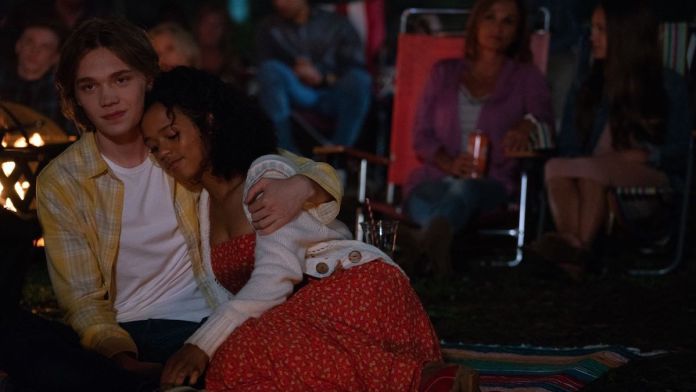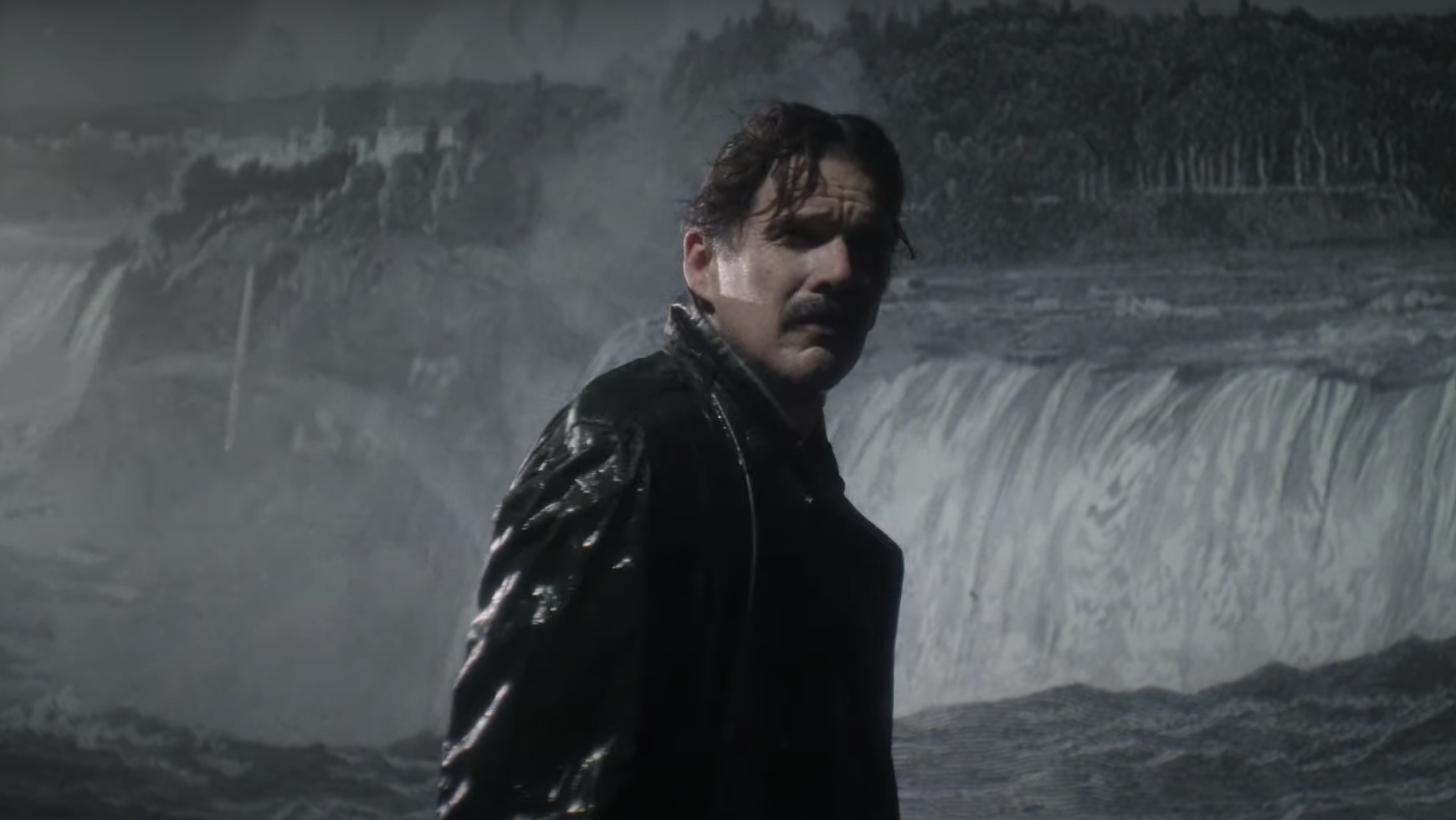Centigrade
by George Wolf
Been sweating out these dog days of summer? Ready for a cool down? Well then bundle up, buttercup, because from its opening minutes, Centigrade traps you in bitter elements with the temps falling fast.
Naomi (Genesis Rodriguez) is an America novelist on a book tour in Norway with her husband Matt (Vincent Piazza). They were driving in darkness when freezing rain kicked in, and Matt suggested they pull over to wait out the storm.
Director and co-writer Brendan Walsh fades in when the couple wakes up to find they are buried under snow, and frozen inside their car.
Also, Naomi’s pregnant. Very pregnant.
In his feature debut, Walsh has the challenge of staging a tense survival thriller from the interior of a sedan. Though the leads are effective enough in communicating a growing desperation, there just isn’t enough here to keep you totally invested in it.
Casting Rodriguez and Piazza – a real life couple – was an understandable move that does pay off. Naomi and Matt’s relationship feels lived-in and comfortable from the moment they awake, which in turn makes the ways their frayed psyches affect each other seem more authentic.
But even in the age of a global pandemic that has re-set the bar on unrealistic stupidity, not all of what Centigrade is selling quite adds up. Through onscreen text that is oddly specific, we’re told the film is “inspired” by actual events, while a closer look reveals Walsh’s admission that the inspiration was “culled together” from several different stories.
And that pregnancy hangs over everything, just as it’s been in the back of your mind since I mentioned it four paragraphs ago.
Is it true life or a convenient MacGuffin? Or, as we learn more about Naomi and Matt’s relationship, will it be a literal example of a baby saving them? As the length of the ordeal moves from days to weeks, Walsh always seems to pull up just when it seems he’s getting the loose ends nailed down.
Even at 89 minutes, too much of Centigrade is uninteresting filler. The payoff, when it comes, feels like an unsatisfying layup, and though the stakes and the characters are both well-defined, somehow that primal question of survival is never truly palpable.













